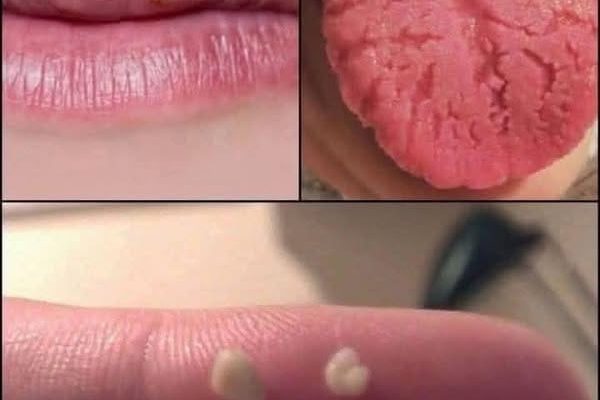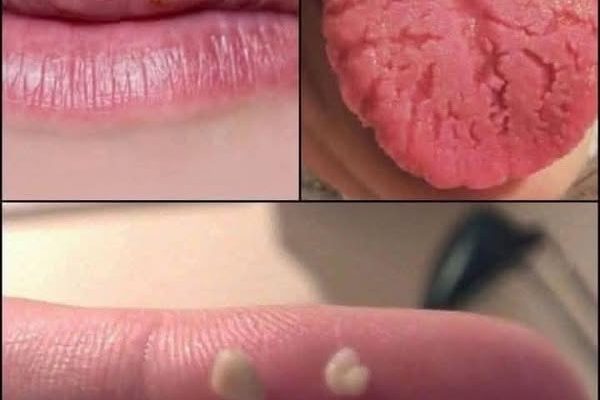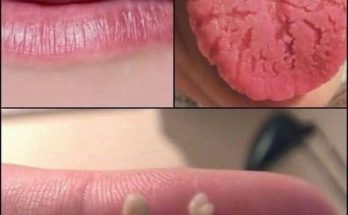BE CAREFUL: If You Notice These Signs on Your Body, It Could Indicate a Serious Condition
Our bodies often send early warning signs when something isn’t right. The image above highlights three concerning symptoms that should never be ignored: lesions on the lips, a cracked or fissured tongue, and small white bumps on the skin. These signs could point to a serious underlying health issue that demands prompt medical attention.
One possible cause? These symptoms may be linked to candidiasis, commonly known as a Candida infection—a fungal overgrowth that can affect the skin, mouth, and other parts of the body.
What Is Candida?
Candida is a type of yeast that naturally lives in and on the body. However, under certain conditions, it can grow excessively and lead to infections. This overgrowth often occurs due to a weakened immune system, poor hygiene, uncontrolled diabetes, long-term antibiotic use, or hormonal imbalances.
When Candida overgrows, it can manifest through:
-
Cracked lips or mouth sores (oral thrush)
-
Fissured or inflamed tongue (which can also signal vitamin deficiencies)
-
Small white bumps or pustules on the skin, fingers, or inside the mouth
If left untreated, Candida infections can spread and cause more serious complications, especially in individuals with compromised immune systems.
Early Symptoms You Should Watch For
-
Persistent burning or itching sensations
-
Redness and swelling around the lips or inside the mouth
-
Cracked, dry, or bleeding patches on the tongue
-
White, cheese-like patches in the mouth or throat
-
Pain when eating or swallowing
-
Small, itchy pustules or blisters on the fingers or skin folds
These symptoms might start mildly but can worsen quickly if ignored.
Risk Factors
Several factors can increase the risk of developing a Candida infection:
-
Diabetes (especially if blood sugar levels are poorly controlled)
-
Antibiotic use, which can disturb the balance of healthy bacteria
-
Weakened immune system (due to HIV/AIDS, cancer treatments, etc.)
-
Hormonal changes (such as during pregnancy)
-
Poor oral hygiene or use of dentures
Recognizing these warning signs early can help prevent the infection from spreading and leading to more serious health problems.
What You Should Do
If you experience any of these symptoms:
-
Seek medical advice immediately. Early treatment is crucial.
-
Maintain good hygiene, especially in warm, moist areas where fungi thrive.
-
Reduce sugar and refined carbohydrates in your diet, as they can feed fungal growth.
-
Follow your healthcare provider’s instructions if prescribed antifungal medications.
With prompt care, most Candida infections can be treated effectively before they escalate into something more dangerous.




